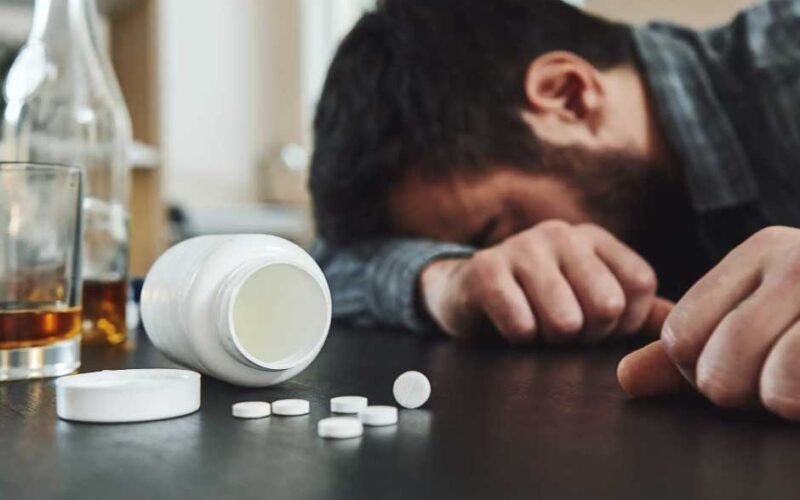Drug abuse is a growing concern worldwide, affecting millions of people from all walks of life. It is a chronic disease that can have far-reaching consequences on both physical and mental health. In this article, we will explore the effects of drug abuse on the body and mental health, and what can be done to prevent and treat this devastating condition. Drug Rehab California is designed to help people recover from drug and alcohol addiction.
Physical Effects of Drug Abuse
Drug abuse can lead to a wide range of physical health problems, including:
- Organ damage: Liver, kidney, and heart damage can occur due to prolonged drug use.
- Infectious diseases: Sharing needles can lead to HIV, hepatitis, and other blood-borne diseases.
- Malnutrition: Poor appetite and digestion can cause malnutrition and weight loss.
- Sleep disturbances: Insomnia, sleep deprivation, and fatigue can occur due to drug use.
- Cardiovascular problems: Increased heart rate, blood pressure, and risk of heart attack and stroke.
Mental Health Effects of Drug Abuse
Drug abuse can also have severe consequences on mental health, including:
- Addiction: Dependence on drugs can lead to addiction, causing compulsive behavior.
- Anxiety and depression: Withdrawal symptoms can lead to anxiety, depression, and mood swings.
- Psychosis: Hallucinations, paranoia, and delusions can occur due to drug use.
- Cognitive impairment: Memory loss, concentration problems, and decision-making difficulties can occur.
- Suicidal thoughts: Drug abuse can increase the risk of suicidal thoughts and behaviors.
Financial Consequences
Drug abuse can also have severe financial implications for families, including:
- Medical expenses: Treatment costs, hospitalizations, and emergency room visits.
- Legal fees: Arrests, court cases, and lawyer fees.
- Lost income: Reduced productivity, missed work, and job loss.
- Stolen assets: Money, valuables, and property stolen to support the addiction.
- Debt: Accumulated debt due to loaning money to the loved one.
Relationship Strains
Drug abuse can damage relationships within the family, including:
- Communication breakdown: Difficulty discussing the issue or feeling unheard.
- Trust issues: Broken trust due to lies, theft, or manipulation.
- Conflict and arguments: Frequent fights and disagreements.
- Emotional distance: Feeling disconnected and isolated.
- Family dynamics: Changes in roles, responsibilities, and boundaries.
Supporting the Family
Families affected by drug abuse need support and resources to cope with the challenges they face. Some options include:
- Support groups: Al-Anon, Nar-Anon, and Families Anonymous.
- Counseling: Individual, group, and family therapy.
- Education: Learning about addiction, treatment options, and recovery.
- Self-care: Encouraging family members to prioritize their own well-being.
- Professional help: Seeking guidance from addiction specialists and therapists.
Commonly Abused Drugs and Their Effects
- Opioids: Heroin, prescription painkillers, and fentanyl can lead to addiction, overdose, and death.
- Stimulants: Cocaine, methamphetamine, and ADHD medications can cause cardiovascular problems, anxiety, and psychosis.
- Depressants: Alcohol, benzodiazepines, and barbiturates can lead to addiction, withdrawal symptoms, and overdose.
- Hallucinogens: LSD, psilocybin, and ecstasy can cause psychosis, anxiety, and flashbacks.
Prevention and Treatment
Prevention is key in avoiding drug abuse. Strategies include:
- Education: Learn about the risks and consequences of drug abuse.
- Healthy coping mechanisms: Develop stress-reducing techniques like exercise, mindfulness, and hobbies.
- Support systems: Build strong relationships with family and friends.
- Professional help: Seek therapy, counseling, or support groups if struggling with drug use.
Treatment options include:
- Detoxification: Medical supervision during withdrawal.
- Medication-assisted treatment: Medications to manage cravings and withdrawal symptoms.
- Behavioral therapies: Counseling, CBT, and contingency management.
- Support groups: 12-step programs and peer support.
Conclusion
Drug abuse is a treatable condition, but it requires prompt attention and action. By understanding the effects of drug abuse on the body and mental health, we can take steps to prevent and treat this devastating condition. Remember, seeking help is the first step towards recovery.







